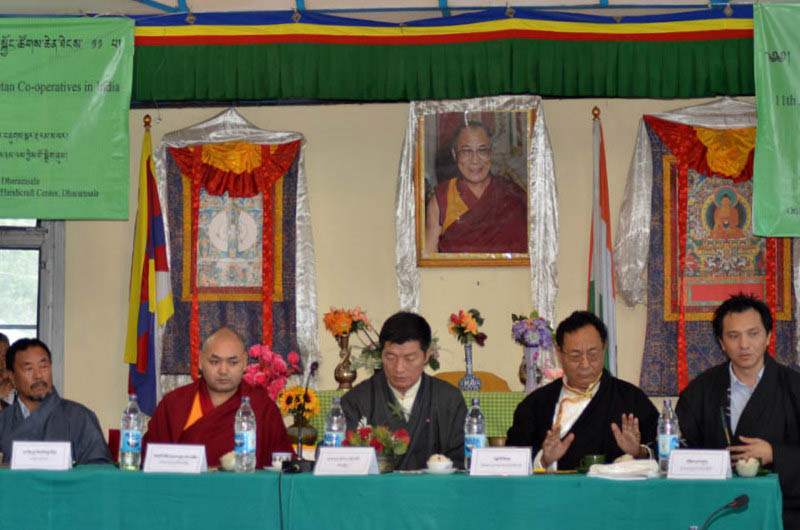 Dharamshala: On August 13, The Federation of Tibetan Co-Operatives in India concluded their three-day conference, held in the Staff Mess of the Central Tibetan Administration in Dharamshala. The Tibet Post International spoke with Mr. Tashi Wangdu, the CEO of the Federation, about this year's meeting and the future goals of the Federation.
Dharamshala: On August 13, The Federation of Tibetan Co-Operatives in India concluded their three-day conference, held in the Staff Mess of the Central Tibetan Administration in Dharamshala. The Tibet Post International spoke with Mr. Tashi Wangdu, the CEO of the Federation, about this year's meeting and the future goals of the Federation.
The Federation is the body that unites the 15 Tibetan co-operative societies in India; the cooperatives produce a variety of goods such as carpet, incense, noodles, and agricultural products.
Wangdu said that the co-operative societies help, directly or indirectly, 60 percent of Tibetans living in India.
Wangdu said that this year's meeting was the first that the Federation solely took the responsibility of organizing. Before the Federation was formed as an independent body in 2005, the Department of Home of the Central Tibetan Administration was responsible for the cooperative societies.
He added, "We luckily had the new Kalon Tripa [Dr. Lobsang Sangay] as the chief guest. It was his first official meeting as Kalon Tripa."
During the three-day event, four new resolutions were passed. One seeks to initiate a new business unit in each co-operative this year and to improve and strengthen the administrations of the cooperatives by increasing staff salaries; secretaries' salaries will increase by up to 35 percent this year.
Wangdu said that currently, administrative staff are getting very low salaries. Consequently, staff competency suffers.
"This is one of the main reasons why some of the societies have failed," he said. "Since we are a business unit, we need a very competitive staff who can explore new initiatives and who can find a new market."
The second resolution deals with the sustainability of Tibetan settlements. The 12th Kashag (cabinet) of the Central Tibetan Administration, about ten years ago, prohibited farmers from irrigating. Without irrigation, Wangdu said, the farmers can only cultivate once of year as opposed to twice or thrice with irrigation. The Federation therefore plans to appeal the new Kashag to reverse this decision and allow irrigation.
The Federation's next resolution is to request help and support from the Kashag and to find additional ways that the CTA can support the co-operative societies. Currently, the CTA supports the societies through giving low interest loans and by conducting workshops and trainings for staff.
The final resolution is to have the next annual conference in Kollegal in south India.
This year, Wangdu said, 12 of the 15 co-operative societies were profitable. The co-operatives in south India tend to do best, as the settlements there are quite large. The settlements in Sikkim and West Bengal have much smaller communities and are suffering most.
Co-operatives have a variety of buyers. In south India, poultry farmers and big businesses buy the agricultural crops, such as maize. As far as handicrafts, these are often purchased in shops by both local and foreign tourists. Monasteries often buy carpets, and co-operative members themselves buy such goods as incense and noodles.
The Federation supports the co-operative societies by taking care of the salaries of each co-operative's CEO, giving scholarships to 15 staff members' children, and giving shareholders scholarships for professional undergraduate studies.
"This is according to His Holiness' advice in the last couple of years that Tibetans have to be professional," he said.
The organization also supports workshops within the co-operative societies to bring awareness to members about their benefits.


![Tibet has a rich history as a sovereign nation until the 1950s when it was invaded by China. [Photo: File]](/images/stories/Pics-2024/March/Tibet-Nation-1940s.jpg#joomlaImage://local-images/stories/Pics-2024/March/Tibet-Nation-1940s.jpg?width=1489&height=878)















